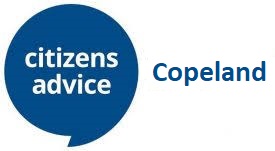Money Confidence
Select advice topic
Budgeting
Budget planning tips
A budget is most useful when it accurately reflects the money you receive and spend. Missing payments out of your budget can lead to it showing you have more or less money at the end of the week or month than you actually do. A great way to identify all of your spendings is to use your bank statements or look at your transactions through your banking app. We recommend at least three months worth of transactions.
Lots of payments can get overlooked in a budget due to the way in which we use money. For example, if once a week you buy a coffee for £2.50 whilst out on a walk and pay with cash you might overlook this when completing your budget. These transactions quickly add up. A great way to keep track of them is to keep a spending diary for a minimum of a week (but preferably a month) ahead of completing your budget. This could be a small notebook, an app or an online tool. Even if you haven’t got these figures now you can complete your budget today and update it once you have all your information.
It’s easy to underestimate how much you spend, or set unrealistic figures for your budget on what you’d ideally like to spend. For most people, it happens with regular expenses like groceries which aren’t always the same. You might set an ideal figure, for example, £30 per week, but in reality, your grocery costs vary between £30 and £45. It’s always better to use the larger figure, you’ll have a more realistic budget and potentially find more money left over at the end.
We all have things we pay for that don’t come up on a weekly or monthly basis. This could be holidays, birthdays, school uniforms or other annual costs like an MOT or service for a vehicle. Not including these costs can have a dramatic effect on a budget, making it seem that there is more money left over each week or month. Remembering to include these costs in your budget will help you manage your money.
These statements will include important information like your interest rate (APR), minimum payment amount and current balances. This can be really useful in helping us discuss the features of the products you use and any options you may have to shop around and save money.
You don’t need to be great with maths in order to budget, but many people find it useful to have a calculator on hand, especially when working through your budget for the first time.
Weekly or monthly?
Budgets are easiest to follow when all the figures are in the same format. You may receive different incomes at different times, or have some bills you pay on a weekly basis and some you pay every month. When working out your budget it’s best to pick either to do this with weekly or monthly figures. Below you will find some tips to help you convert your amounts:
● To change weekly to monthly amounts –
Weekly figure x 52 (weeks) divided by 12 (months)
● To change monthly to weekly amounts –
Monthly figure x 12 (months) divided by 52 (weeks)
● Annual to monthly amounts –
Annual figure divided by 12
● Four-weekly to monthly amounts –
Four-weekly x 13 (payments) divided by 12 (months)
● Fortnightly to monthly amounts –
Fortnightly figure x 26 (payments) divided by 12 (months)
Use our Basic spending diary to help you:
Use our budgeting tool
Use our budgeting tool to help you work out your budget
Before you start
The tool will be most useful if you give accurate figures. You can use rough figures if you just want a general idea of your budget.
Try to find your most recent:
- bank statements
- payslips
- debit and credit
- card statements or bills
- receipts for things you usually pay for in cash
Make sure you include all your expenses, for example money you spend on your partner or family.
Please see our Contact Us page for details on how to access our help.
You can also access help on the Citizens Advice National website.
